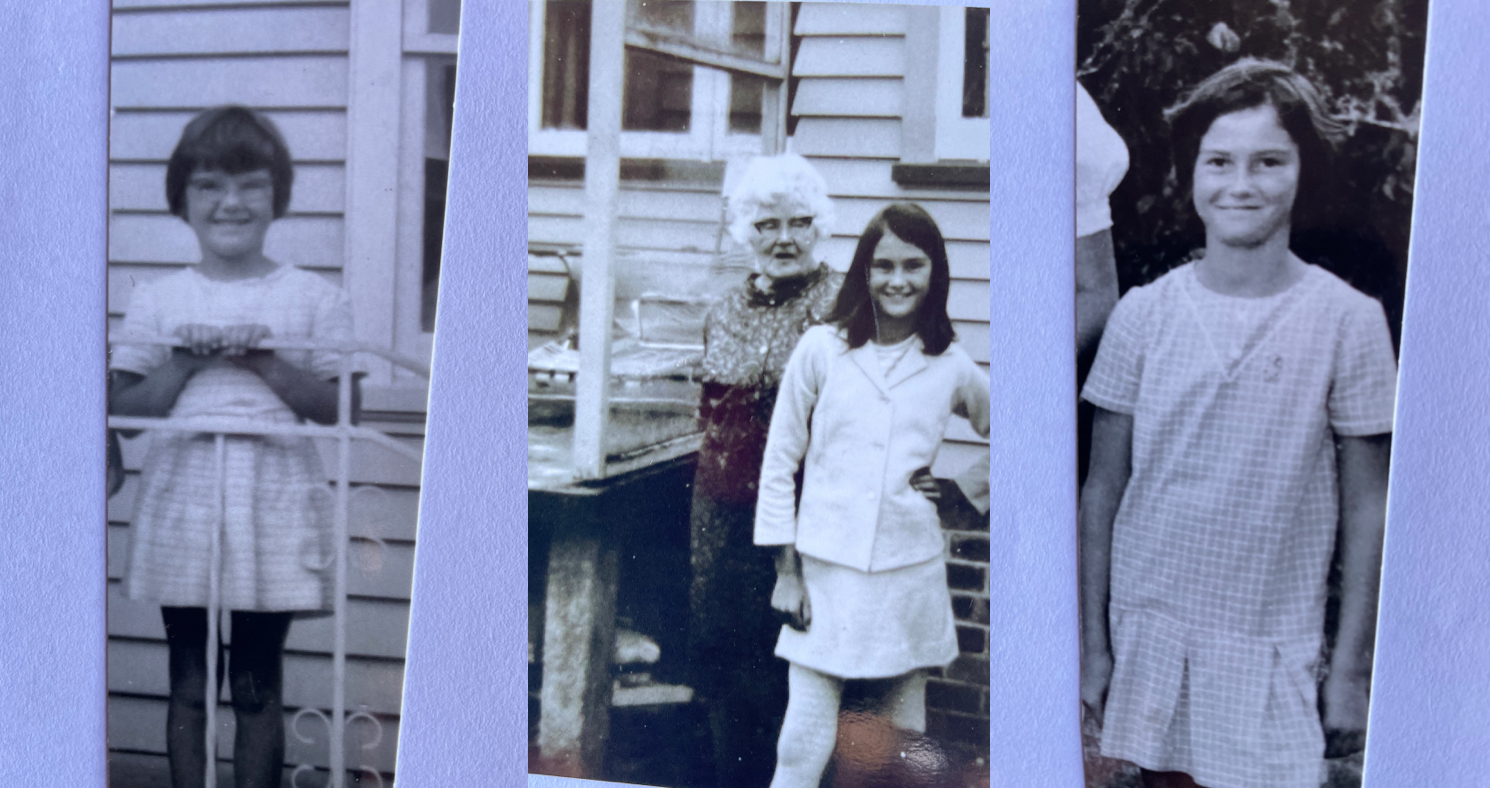
By Sande Boritz Berger
If I were still a young girl, I’d probably call him a loser, but because many decades have passed since I last saw him, I’m good with just plain Chuck. Besides, it’s likely that Chuck is no longer with us, as in: he’s left this sweet earth. Chuck liked to chug down a beer or three, and usually smoked a pack of Camels a day. Or just maybe, he is still alive, residing in some pastel-walled nursing home on Long Island, a convenient place for his children and grandchildren to visit. He already had four kids when I knew him, and a beautiful wife, Janet, who I never met.
Around the time I turned “sweet sixteen”- a label, which usually provoked laughter in our home, my mother and I, on Saturdays, often went to a beauty parlor called Cesar’s. Afterwards, we’d go shopping together and grab a lite lunch. Most of the time, unless I had a dance or party to attend, I sat reading old copies of Modern Screen magazine drooling over Ricky Nelson, while my mother camouflaged her greying roots, or tried out a chic new hair-cut. In the 60’s every woman, including my mother, wanted to look just like Jackie O. Chuck was her hairdresser, and while he worked miracles on my mother’s hair, whenever I looked up, I knew they were talking about me. Chuck either turned toward me or gazed in the mirror to watch me keeping myself occupied. Often his face broke into a huge smile, which made his dark eyes shrink into tiny slits and nearly disappear.
My mother hardly ever noticed these glances while she flipped through her favorite magazine, House Beautiful. Sometimes, to be polite, I’d smile back at Chuck, and whenever my mother tipped him, after he kissed both her cheeks, he usually kissed mine too. I remember the soapy scent of his aftershave mixed with nicotine. This routine continued until I finally went away to college, and my mother began spending most weekends with my father and friends who’d remained in our old neighborhood in Brooklyn.
Yet, whenever I came home for a visit and needed a haircut, I’d go to Cesar’s. Though the place was always busy, Chuck made sure he’d be the one who took care of me. While clipping away, he sometimes asked questions about my boyfriends, but nothing too personal, except once he did say: how lucky any boy would be to go out with me. I said thank you, and tried not to glance up at him until I heard his laugh, and saw that slit-eyes smile of his, which often made me blush.
Then, during the summer before senior year, I met a very nice boy who was in graduate school, and after several months of dating, we got engaged. Everyone I knew was either already married or engaged, and I remember the enormous pressure I felt entering senior year. Almost daily I had fantasies of never leaving my childhood home- positive I’d be the only one I knew still single… or worse: an old maid like my Aunt Selma, which in my family was nearly sinful. My father looked at each and every date I had as a prospect for my future husband.

Right before graduation, I got a job teaching fourth grade on Long Island, and would live at home while planning my wedding, which was to be in July the following summer. I was consumed daily with what felt like trivialities. I thought about cutting off my hair, and decided I’d wear it up for the wedding and envisioned a braided pony-tail while on our honeymoon relaxing on the sandy beach of some beautiful tropical place.
One Friday afternoon, my mother and I arrived at Cesar’s hoping to try out an upsweep style for me. Stuck on her Jackie look, she had already bought a dark brown wig. Chuck was running later than usual, and my mother suddenly remembered she had to pick up my youngest brother after his baseball practice. Without telling me, she asked Chuck, who lived a couple of towns away, if he would mind driving me home after he had finished working on my hair. Though I was uncomfortable at her suggestion, I stood beside her and Chuck totally mute. I could have said, I’ll come back another time, but I did not utter a word.
The rest is unclear and hazy perhaps because I want it to be. Chuck styled my hair in a sophisticated upsweep and proudly held a mirror at every angle for me to see. Though I liked it, I could barely speak. It was almost six o’clock, and I was tired and hungry when I got into Chuck’s car so he could drive me home. It was a sleek, black car, and he smiled his slit-eyed smile when he promised he’d keep the top up to protect me and my beautiful hairdo.
There was dead silence in the car except for Chuck’s humming a melody I didn’t recognize. About five minutes passed, when he quickly pulled in to what looked like a small shopping center, but it was really a restaurant and bar, which faced the main road. There was a shabby motel in the back, and several parked cars.
“Why are we here?” I asked in a birdlike voice. Not at all the voice I’d use with my rowdy fourth graders.
“I know you’re starving” Chuck said, “and they have really great burgers here. It’ll be quick, doll, you’ll see.”
A little bit relieved, I followed Chuck into the dingy old place and was surprised to see very few people inside, but it was still early. While Chuck ordered, I stood looking at photos on a greasy wall. Suddenly he tapped me on the shoulder, and before I knew what was happening, some really old 50’s love song was playing on a jukebox while Chuck placed his arms around my waist- his slit-eyed face breathing into mine. I tried wiggling away, mumbled I was tired, but he pressed his mouth to my ear and whispered- just relax, relax. When the food finally arrived, I said I wasn’t hungry. I said I had to get home. Please, I said, even louder: take me home! And, surprisingly, he does.
It is July, one year later and my wedding day. I’ve been driven to Cesar’s by a family friend, who can tell that I am nervous. I know because she keeps saying: Don’t be nervous. Everyone in the shop is congratulating me. Hot tears spill from my eyes. Chuck shows me the small tortoise shell comb for my veil. Gently, he places it into a knot of my hair and smiles. “Everything will be okay,” Chuck whispers, you’ll see.


This is an excerpt from Sande Boritz Berger’s new book Split-Level, a story of how a double divorce with a sometimes humorous and often painful look at how suburbia affects families, often leaves women with a confused sense of self. She provides a breathtaking look at spousal relationships, gaslighting, emotional abuse, and the women’s movement– a #MeToo lens turned back on a past era, rife with complicated change. Alex Pearl, a young wife and mother in the post-Nixon 1970s, finds her understanding of romance and family challenged when her husband becomes obsessed with the idea of an open marriage. Yearning for both greater adventure and intimacy, yet fearful of losing it all, Alex must figure out the truth of love and fidelity—at a pivotal point in American marriage.
Sande Boritz Berger was a scriptwriter and video producer for Fortune 500 companies. She holds her MFA in writing and literature from Stony Brook Southampton College, where she was awarded the Deborah Hecht Memorial prize for fiction. Her short stories have appeared in Epiphany, Tri-Quarterly, Confrontation, and The Southampton Review, as well as several anthologies. She has written for the Huffington Post, Salon, and Psychology Today. Visit her at www.sandeboritzberger.com.

















2 thoughts on “Author Draws Parallels Between The Women’s Movement Of The 70s & Today’s #MeToo Movement In New Novel ‘Split Level’”